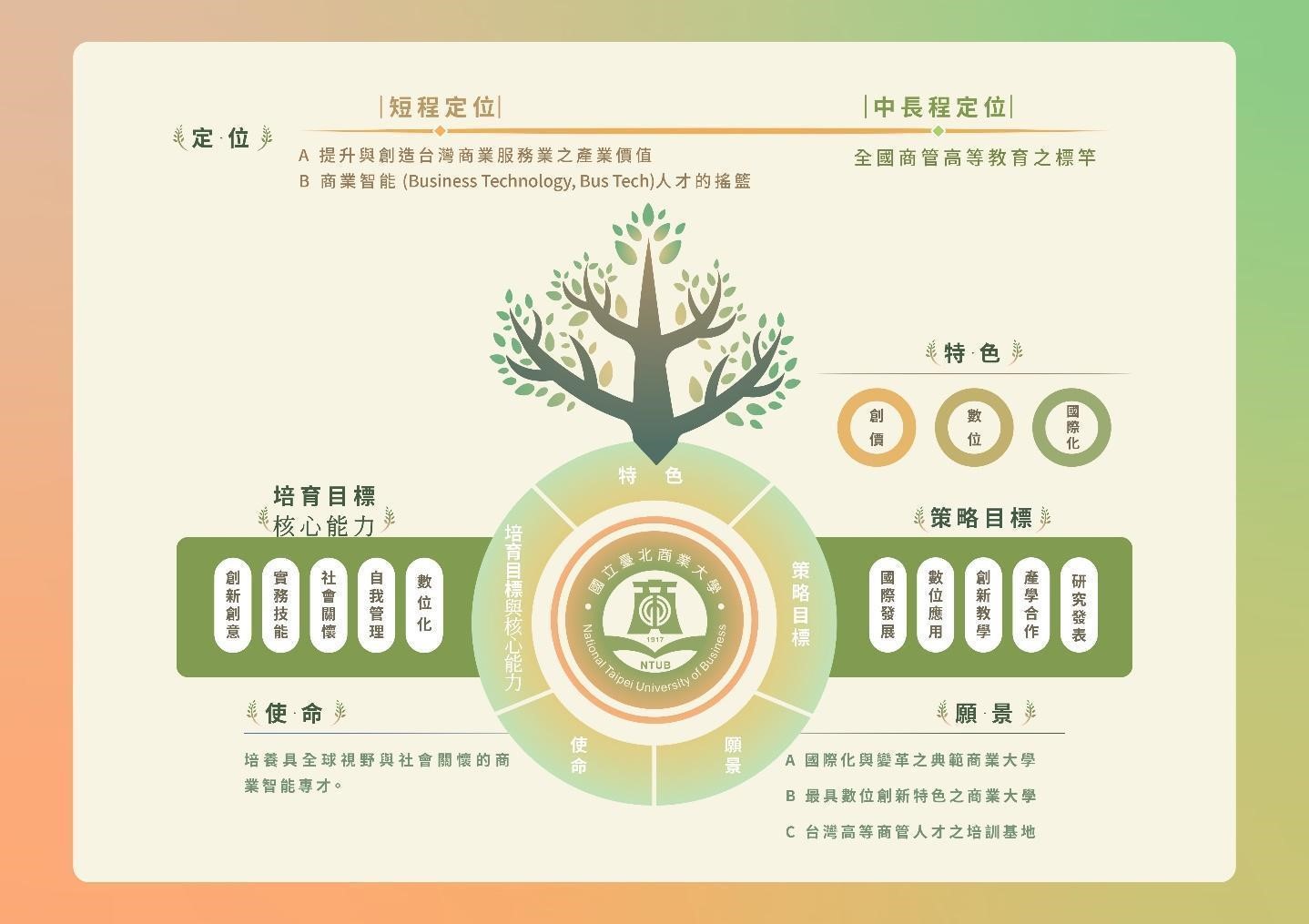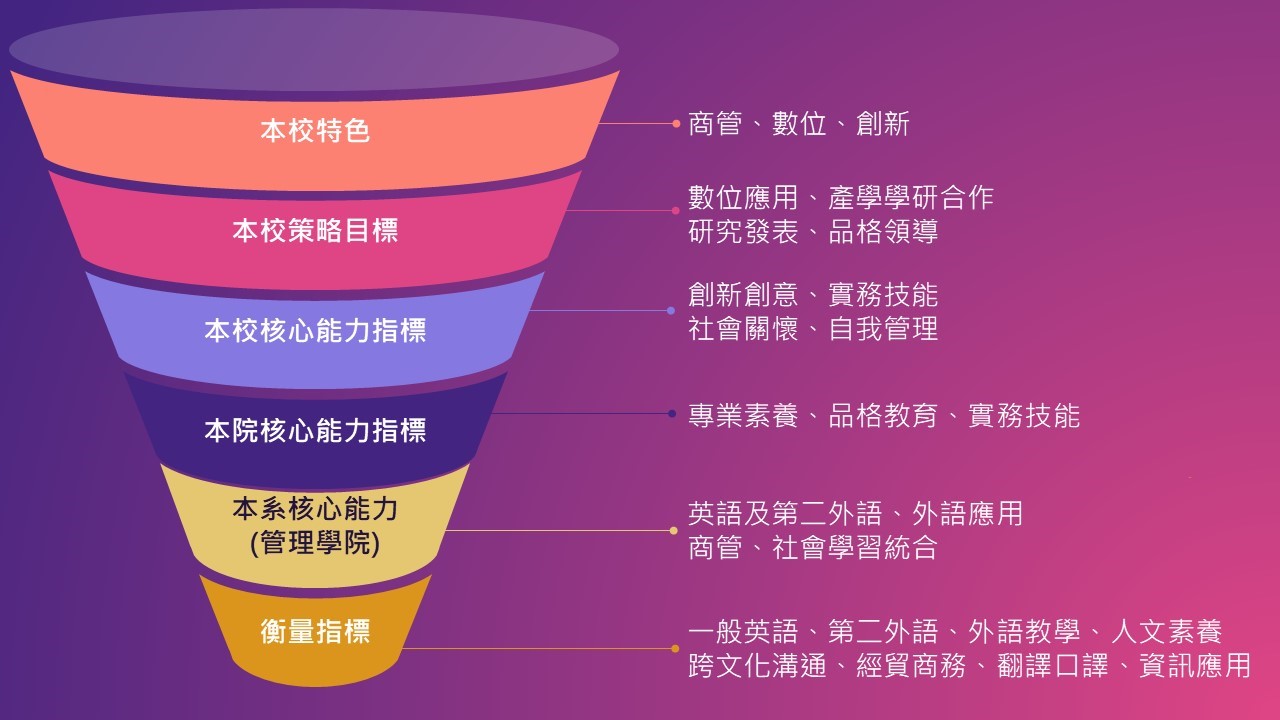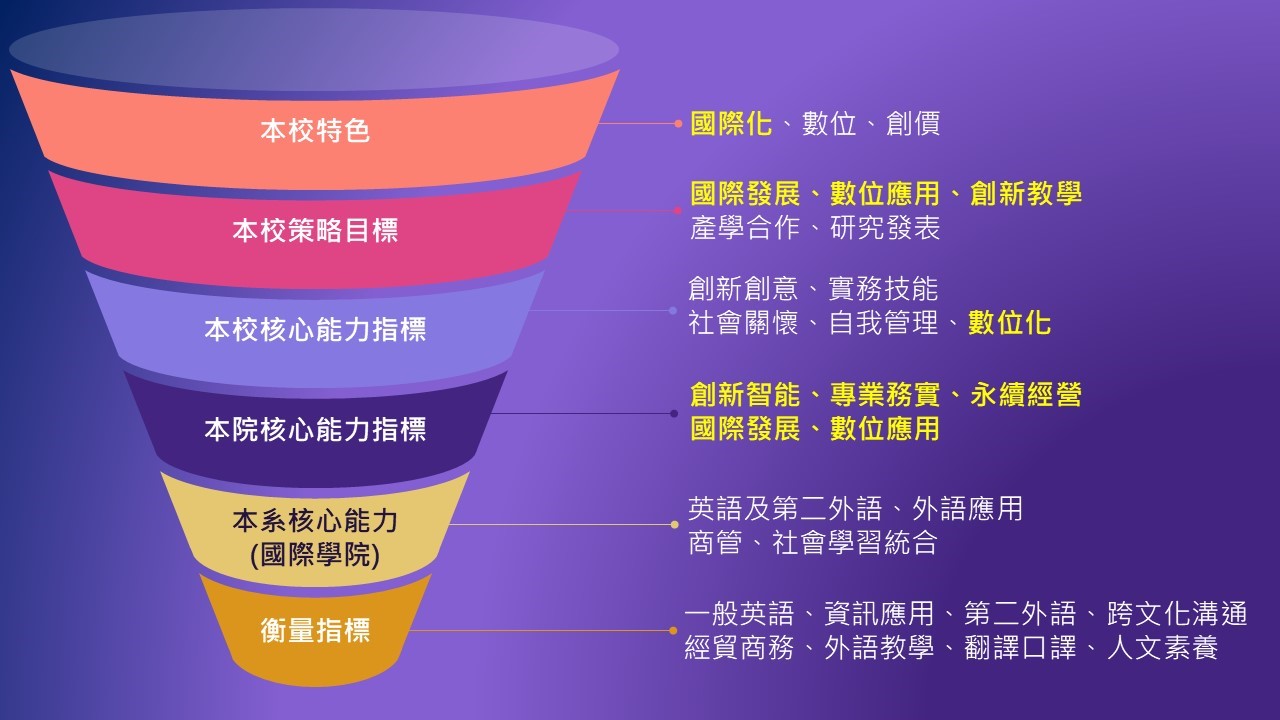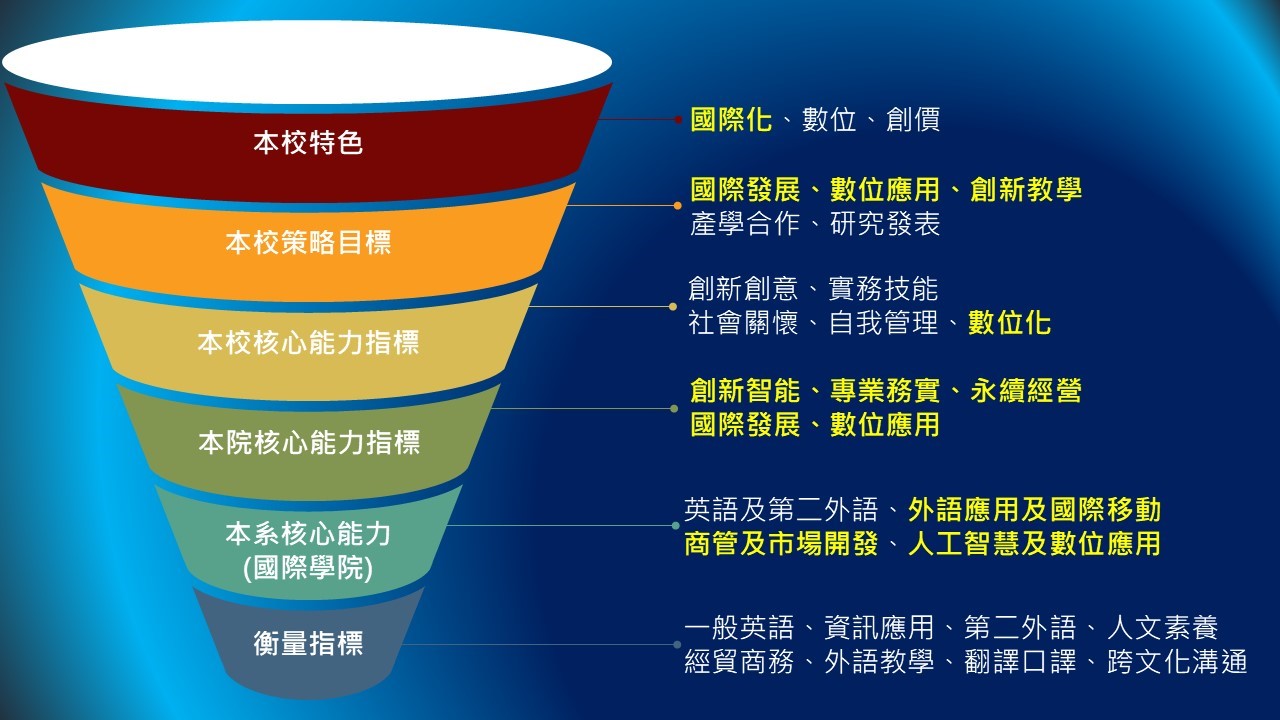Training Objective
National Taipei University of Business (hereinafter referred to as “the University”), as a leading institution in the field of business management within Taiwan’s science and technology university system. The University aspires to become a “practical teaching-oriented university in business management.” To realize its educational philosophy of “business expertise and practical teaching,” the University pursues a development vision centered on “dedication to talent cultivation, social service, and industrial advancement.” It emphasizes two distinctive domains—business management and innovation—in order to nurture outstanding commercial professionals equipped with both professional competence and ethical integrity. The University guides students in obtaining professional certifications and enhances their employability skills, ensuring seamless transition into the workplace upon graduation. To realize the long-term strategic objectives of internationalized learning and industry-government-academia-research collaboration, the university has established five core competency indicators: “practical skills,” “innovation and creativity,” “self-management,” “social awareness,” and “digital literacy” (see Figure 1-1-1-1 for details). The Department of Applied Foreign Languages (hereinafter referred to as “the Department”), formerly affiliated with the School of Management, designated “English and Second Foreign Language Proficiency,” “Specialized Foreign Language Application,” “Business Management Competence,” and “Integrated Social Learning Ability” as its four core competency indicators for the 2021-2022 academic year, as illustrated in Figure 1-1-1-2.
Commencing from the 112 academic year (2023), the Department transferred to the School of International Marketing (hereinafter referred to as “the School”). The School’s core competency indicators include “Innovative Intelligence”, “Professional Pragmatism,” “Sustainable Management,” “International Development,” and “Digital Applications.” With the educational objective of “cultivating specialists in international marketing,” and recognizing International Development as essential to enhancing students’ global mobility, the Department has revised its educational goal to “cultivating mid-to-senior level professionals in foreign language and international marketing-related industries.” Furthermore, to align with the University and the School’s medium-to-long-term development objectives, integration with industry globalization and the Ministry of Education’s EMI (English as a Medium of Instruction) bilingual education policy are seen as vital, as is a response to the establishment of the University’s teaching quality assurance system (UCAN) course map. The Department has progressively adopted four core competency indicators since the 2023 academic year, including “English and Second Foreign Language Proficiency,” “Foreign Language Application and International Mobility,” “Business Management and Market Development Capabilities,” and “Artificial Intelligence and Digital Application Capabilities.” For details, refer to the “Core Competencies and Measurement Indicators for Student Development” during the School’s periods under the School of Management and the School of International Marketing, as illustrated in Figures 1-1-1-3 and 1-1-1-4.
 圖1-1-1-1本校中長程定位與核心能力指標
圖1-1-1-1本校中長程定位與核心能力指標

圖1-1-1-2本系核心能力與衡量指標圖(110-111 管理學院時期)

圖1-1-1-3本系核心能力與衡量指標圖(112 國際行銷學院時期)

圖1-1-1-4本系核心能力與衡量指標圖(113 國際行銷學院時期)
